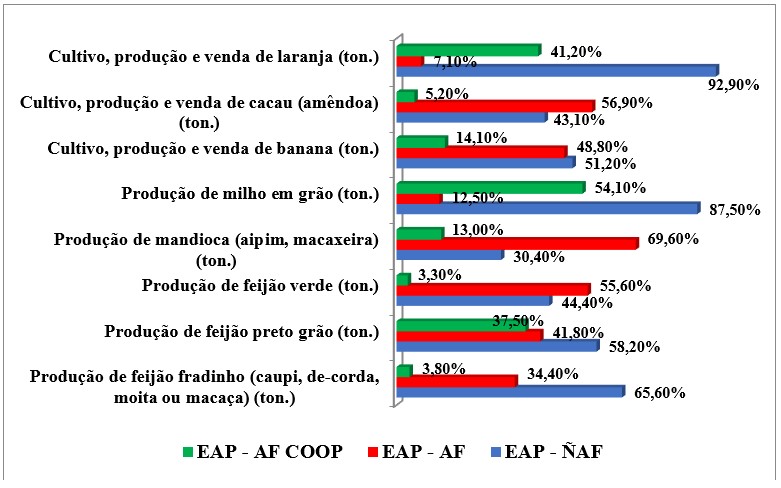Abstract
This article presents results of a study on characteristics of establishments classified as family farming that are associated in cooperatives, aiming to understand trends of cooperation in the productive and reproductive activities of this segment. Based on the systematization and analysis from the 2017 Agricultural Census carried out by the Brazilian Institute of Geography and Statistics (IBGE), the low percentage of association in cooperatives among producers responsible for agricultural establishments in Brazil can be seen. In the case of family farming establishments, the participation is even lower in the North and Northeast regions of the Country, as well as among producers with lower income. Factors related to the low participation of this segment in cooperatives were identified, including the size of the property, the income range and education. Some trends in agricultural cooperation were analyzed, highlighting the contributions of cooperativism in making the marketing of production viable, in expanding the income obtained from the establishment and in accessing rural extension services. The study provides evidence that the low participation in cooperative expresses historical structural deficiencies denying adequate access to the means of production and living conditions that limit the expansion of family farming potential in Brazil to promote sustainable rural development.
Keywords:
family farming; agricultural cooperatives; sustainable rural development

 Thumbnail
Thumbnail
 Thumbnail
Thumbnail
 Thumbnail
Thumbnail
 Thumbnail
Thumbnail
 Thumbnail
Thumbnail




